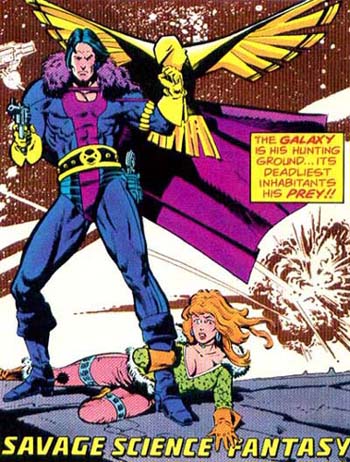Dionysos is not a superhuman Olympian or a Titan from beyond the Cosmos. Any human worshipped as that god (and there have been several) is actually an infected carrier of a nanomachine virus that the Olympians call "Dionysos." The origins of the nanomachines are unclear; Some tales imply it was born in the Underworld (perhaps created in a plot for revenge by the imprisioned Titans), while others suggest Zeus is it's creator. Whatever its origins, the Olympians seem unwilling or unable to stop its spread.
In the typical infected individual, Dionysos causes an extreme losing of inhibitions, exacerbated by uncontrolled use of any intoxicant available, most often wine and plant-derived hallucinogens or deliriants. In some cases, Dionysos itself causes hallucinatory experiences. Groups of Dionysos infected will often go into an estatic frenzy of sexual abandon and compulsive violence. They congregate in groups, roaming the countryside following one of their number that they believe to be Dionysos. The so-designated individual acts accordingly. The role shifts after a period of days to weeks, though the shift may occur abruptly.
Must Dionysos infected celebrants will be normal humans, though satyrs, nymphs (called maenads, though this term is sometimes applied to all infected females), sileni, and centaurs will also be found among them at times. When a group of Dionysos infected are encountered, a roll on the Monster Reaction Table determines how they respond. Resisting their demands to join their revels, causes a +2 penalty on the roll. Anyone in close proximity to an infect individual (within 3 feet) must make a save versus poison or join the revelry for 1d6 turns. Thereafter, as long as the individual remains in proximity to the infected, a failed saving throw means the effect continues for 2d6 turns, and a success 1d6. Three failed saving throws in a row mean the effect is permanent until cured by sorcery or "divine" intervention. Contact with body fluids of infected give a -2 to saving throws.




























